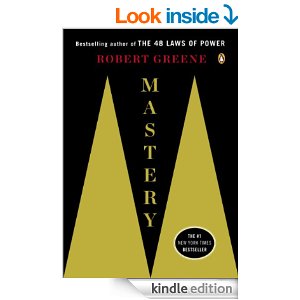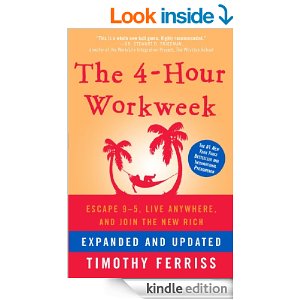What is a world class product?
2014 Mar 27, by David KimTweet
rss
Someone on the team said to me recently, “I want to help make this group one of the best product focused communities in the Bay Area.” Which got me thinking, what is the best? What does that mean?
Phrased differently, what is world class? and how do you get there?
PM Fast Track is young and have much room to grow, so the statement made me think hard. I am guessing that you think about the same thing for yourself and your product.
How do you become a world class product manager?
What does it mean for your product to be world class?
Competence versus Mastery
Of course, the trouble with a topic like this is that measurement of mastery is hard. So, it risks falling into a philosophical debate of opinions. And opinions are like assholes … everyone's got one, and …
But, I think our solution is look to a commonly agreed-upon examples of mastery. We would look at someone like Michelangelo or Beethoven, and look at their works, and agree that they are masters. How does one become a master?
I am reading a book by Robert Greene about Mastery. Greene uses past and current masters and how they attained mastery as a template for attaining mastery. When it came to Product Management, this made me think, who are the masters and how does one in general attain mastery of the craft?
It turns out, masters identify an early childhood inclination. They find a path to apprentice under an existing master (sometimes the apprenticeship is self-crafted due to constraints or circumstances, as was the case with the author Zora Neal Hurston). The role of apprenticeship is simply to save time - not to reinvent a wheel or a field of knowledge. After the apprenticeship, you then experiment to discover your own style and carve a new path, ultimately attaining your own mastery. In the book, Greene applies this model to artists (like Leonardo da Vinci) and scientists alike (like Charles Darwin or modern-day neuroscientist like V. Ramachandran).
There are many explanations behind this pattern of learning and mastering, but a key reason has to do with our biological makeup, how we evolved, and how our neurons connect and learn. Much of our brain evolved in pre-literate environment. (See Ramachndran's TED talk below.)
Ramachandran on Neurons and Civilization
This line of thought and research became popularized in recent years with the idea of 10,000 hours of practice, widely publicized through Malcolm Gladwell's Outliers: The Story of Success. The simple idea being that it takes about 10,000 hours of practice of increasing intensity in order to master a complex skill. Complex skill like, playing the violin, or software engineering, or say product mangement.
Notice that even today, certain professions like medicine or law follow this model to a letter - of apprenticing under a master (hopefully) for an extended period of increasing level of challenge.
Apprenticeship is a system invented during the Middle Ages. That said, it happens to mirror how human beings as biological animals master a complex skill. In today's technologically driven and connected world, there is a divergent approach to learning. I was struck by Timothy Ferriss's The 4-Hour Workweek and how Ferriss approaches learning. Ferriss mastered the skill of efficient learning. He subsequently rearticulates and refines his system in his other books. And you may want to learn more about his techniques to learn a skill very quickly - even something like product management or learning a new language.
In short, Ferriss applies a process of deconstruction, selection, sequencing and stakes (DSSS) to learn a new skill very quickly. In a sense, this approach is an application of the 80/20 power law or Pareto Principle (see a post about power law and leverage).
Previously, we talked about how to get a job without PM experience. Such pragmatic approaches are valid, and one can apply a system like DSSS and networking to quickly gain competence in a discipline. But, it is both useful and humbling to recognize, in order to be really good … in order to be a master, you have to take the long road and persevere for many years. This is not what the instant karma culture wants to hear.
… in order to be a master, you have to take the long road and persevere for many years. This is not what the instant karma culture wants to hear.
The output of a master is a masterpiece. A masterpiece, is by definition, world class.
High-level versus Details
Have you thought about building something world class? Coming back to the question at the beginning of this post, I found that we tend to think about things in large brush strokes. For example, in first thinking about the product management community, I wanted us to grow the membership, have more events and more consistent theme to skills we teach.
These are high-level thoughts. These are the thoughts of a novice. The team member, though, thought more like a master. He focused on the events, which is what we currently have. He created a detailed mindmap that dug into every nook and cranny of a good event - from the kind of food, to time of day, to reviewing the presentation with the speaker, and on and on and on. At first, it seemed to me like an overkill. I wrote back saying these are not the kind of things we should focus on as a team. Certainly, we need to learn to prioritize. But, I recant my statement. You should dig into the details, like a master who knows deeper details than the novice. You should get obsessively detailed about what you do - your craft, your product.
“God is in the details”
attributed to Ludwig Mies van der Rohe
Practice
You might think, okay, well that sounds nice, but how do I get detailed when I am just learning? I think this will require another post to flesh out, but let me leave you with this thought.
When you are learning to play piano, you practice scales. When you are a competitive swimmer, you swim laps between competitions. Just so, when you are a product manager, you should practice. What is your daily exercise, individually and as a team? Practice really makes perfect. And time makes perfect.
Back to All Blogs
comments powered by Disqus
Stay connected via our newsletter:
Or follow via
twitter linkedin googleplus facebook rss
Read recent posts
- PMFT Digest 35 - Little Things
- PMFT Digest 34 - Thanksgiving
- PMFT Digest 33 - Jobs and Users
- PMFT Digest 32 - Getting Analytical
- PMFT Digest 31 - Carrying On
- PMFT Digest 30 - Whats on Your Mind?
Get involved
Submit meetup ideasWant to teach?
Donating = Caring
If you find any value and encouragement in the PMFT Digest, please consider becoming a Supporter with a small recurring or one-time donation of your choosing, between a cup of coffee and a mission taco.

